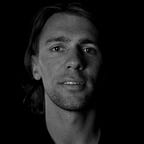Jean Tries To Get Election Answers At The Facebook Christmas Party
Jean saw Mark Zuckerberg enjoying a martini by the thumbs-up ice sculpture at the Facebook Christmas party. She was a guest but this was her chance, so she asked, “Mark, what are you doing about the spread of misinformation?” There was a rumble and a thousand black unicorns carrying PR handlers burst from the chocolate fountain and whisked Mark Zuckerberg to a bunker under the stage where Aerosmith was playing. No one seemed to notice.
Jean wandered to the Venetian boar roast where she met Jack in marketing, and though he wasn’t as cool as Mark Zuckerberg, asked, “What are you doing about the dangerous spread of misinformation?”
Jack nodded smartly and said, “There are teams working hard on that, I hear, but that’s not my area.”
“Surely you must have some idea?” Jean asked. And, twirling his Tesla keys, Jack replied, “When we receive such questions I’m supposed to do this,” and threw a smokebomb that made a thumbs-up cloud and was gone. No one seemed to notice.
Jean was starting to think she was being too direct, maybe a little annoying. She was a guest afterall.
“Can’t believe Trump’s our president––how could that happen?” Jean said fishing for common ground with Facebook COO Sheryl Sandberg as she plucked an hors d’oeuvre off a trapeze artist swinging past.
“I’m still devastated,” Sheryl Sandberg said.
Jean felt a little conflicted because Sheryl Sandberg always comes off so nice in the press but said, “So what’s Facebook doing about the dangerous––”
“Peter!” Sheryl Sandberg said to Peter Thiel who chairs a 100%-secretive human-data-mining company that works directly with federal intelligence agencies called Palantir and is also a Facebook board member.
Stunned she had an audience with these two bigwigs Jean drew up her courage and again asked her question, but Peter Thiel waved her away with a #MAGA ID card and said, “Facebook’s just a platform. People make decisions. That’s what we do in Silicon Valley: build platforms. People make decisions. Platforms. Decisions,” and his cheek rippled like a worm and smoke puffed from his ear but Sheryl Sandberg whisked him into a helicopter nestled betwixt two thumbs-up sculptures from Jeff Koons and took off, indoors, somehow. No one seemed to notice.
Jean felt they’d kinda blown her off. She felt entitled to a real answer, something concrete. She knew lots of people felt misinformation was a problem, perhaps the problem––and Facebook so many people’s sole news source. She understood Facebook was a publicly-traded company beholden to quarterly Wall Street psychosis and that we exist in a capitalist machine where people allegedly make their own decisions. But she believed (or had been told, she couldn’t remember) that Facebook felt truly responsible for watching out for “users”, even if that’s the word we apply to drug addicts, same as an oil company watches out for the environment, same as a pharmaceutical company watches out for side effects, same as an insurance company watches out for patient expenses, same as a fast food company watches out for your health. This is a company comprised of people. Surely someone cares or has some plan to prevent the 1.8 billion users who are also humans from becoming a race of bent-neck zombies.
But as she walked to an executive at the sushi bar a black unicorn stepped in her path and a PR representative hovered to the ground. No one seemed to noice.
“Can I help you?” he asked and his face changed shape.
Jean said, “I’m just trying to understand what Facebook’s doing about the online echo chambers, besides making billions of dollars. You guys are heroin 2.0. No one here seems to acknowledge that.”
“Jean,” the rep said not explaining how he knew her name, “I think the real key here is understanding how Facebook connects people. Do you understand that, Jean? Do you understand how that connection is essential for everyone’s lives?”
“In truth, I really don’t.”
The rep pushed his eyeball back into place.
Jean added, “I think you just make people abandon their imaginations.”
He smiled with half his face. “Jean, take an election in a war torn dictatorship. Facebook’s connections bring people information so they can spread freedom and democracy.”
“But everyone in the United States uses Facebook and we elected Donald Trump.”
His head started to rotate like a curious owl’s.
“Let me put it differently,” Jean said. “If you push a story full of lies into someone’s news feed, aren’t you just as much a liar as the writer?”
“Jean, people don’t change their minds on Facebook, they only confirm their own biases.”
“Look,” Jean said, a tad anxious because the black unicorn smelled weird. “I don’t mean to be rude. It’s your Christmas party. But that sounds like cold comfort psychobabble newspeak, clever words that vague over a serious problem.”
“Jean, think of it this way, don’t you like being able to Haha or Angry Face what someone shares?”
“It’s more flexible than liking but –– wait, stop changing the subject. You guys make oodles of money on people clicking; and outrage makes people click the most; and misinformation’s the easiest way to create outrage. I’m trying to ask––.”
“Let’s discuss at the afterparty,” the PR rep said and the floor catapulted Jean to a suite at the W Hotel where champaign awaited in thumbs-up shaped bottles.
[Caleb Garling is a journalist/writer and author of The St George’s Angling Club, a novel about the outdoors.]
